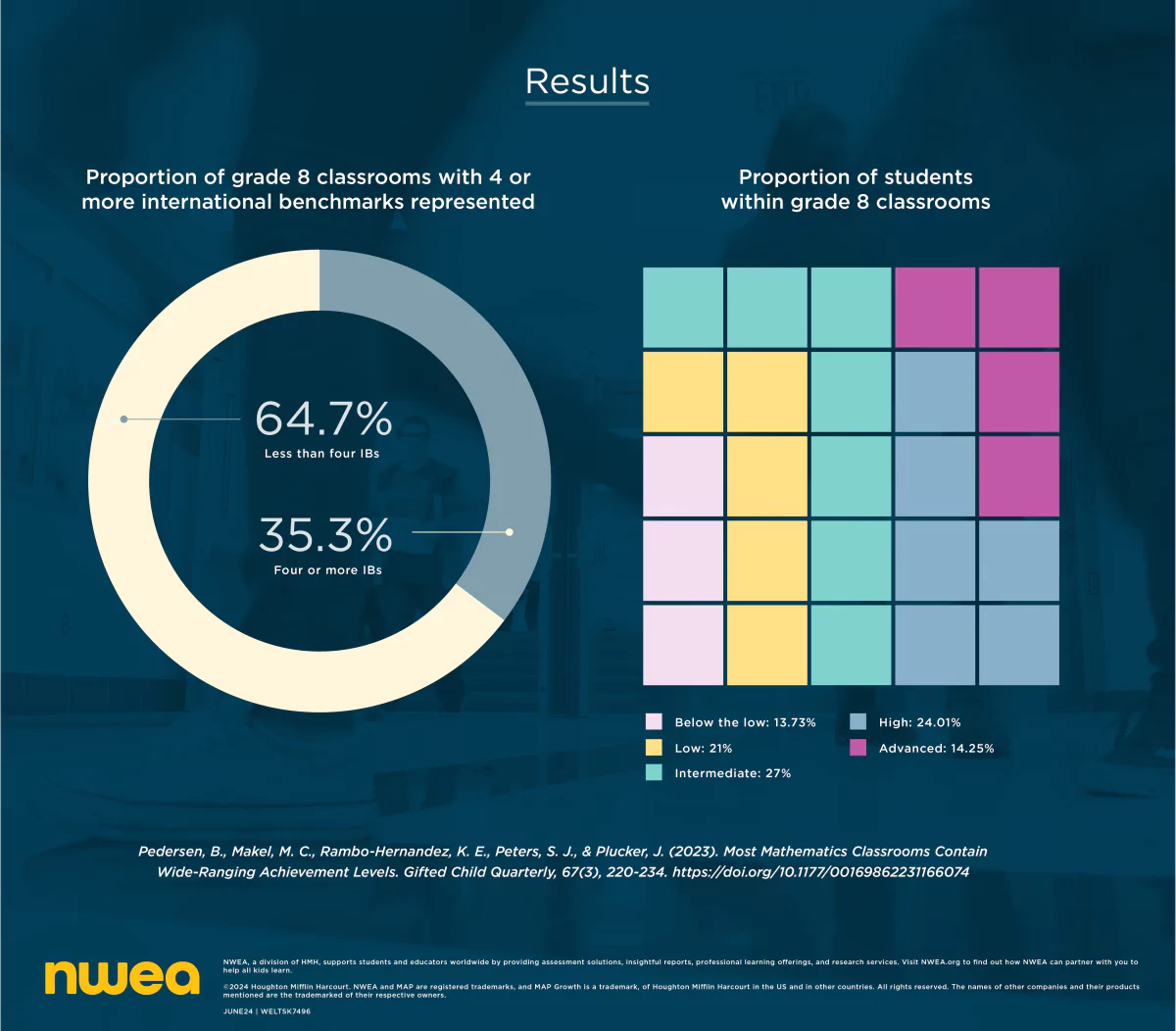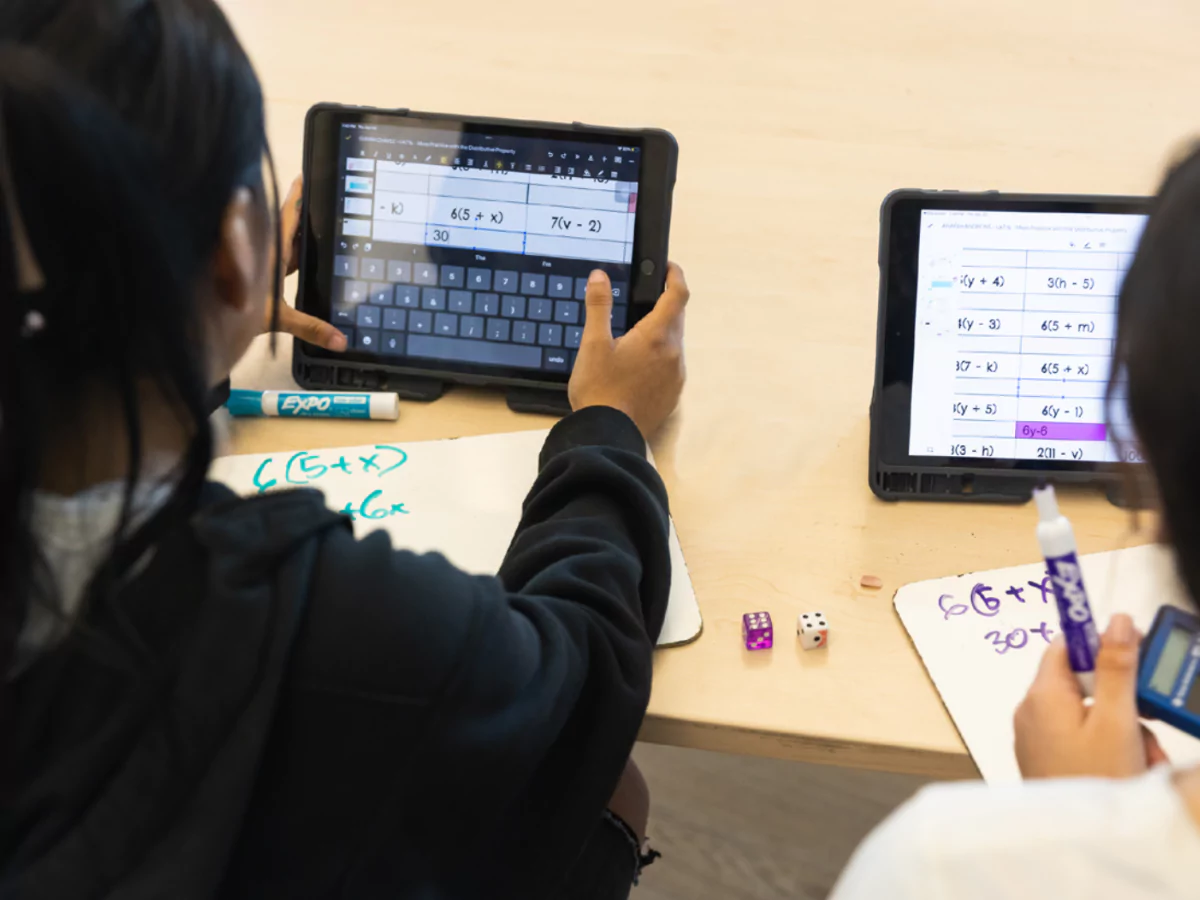By Dr. Scott Peters
Students in any U.S. classroom are incredibly diverse in terms of prior learning, home language, socioeconomic status, and culture. They are also diverse in the concepts, skills, and standards they have either mastered or are ready to learn.
Varied Skill Levels
Some kindergarteners are already able to add and subtract (about 7%) while others still can not identify basic shapes (about 5%). Similarly, multiple studies have revealed the wide-ranging instructional needs that are common in a typical American classroom. In the U.S., about 1/3 of 8th-grade classrooms range from students who are still working to understand basic graphs and whole numbers to those who can already solve linear equations and functions—and everything in between.

It’s a challenging task for any classroom teacher. At least the students on the advanced end of this achievement and readiness distribution can be subject-accelerated into a higher-level math class. This might take the form of 6th or 7th graders taking pre-algebra or 7th or 8th graders taking Algebra 1. But if schools are going to make this an option, they need guidance to recognize this: what level are the students ready for; would they benefit by accelerating into a higher level class?
Understanding the Criteria
Over the last few months, I worked on a project using NWEA MAP Growth data. I was determining what scores should a school consider when deciding if a student is ready to be accelerated into Algebra 1 next year.
I found that assuming students will demonstrate average growth throughout their Algebra 1 class, approximately 1/5th and 1/3rd of students are “ready” for Algebra 1 at the end of 6th and 7th grades, respectively. After some back-of-the-envelope calculations of Spring 2024 MAP Growth math scores, I found that 27% of 6th graders and 31% of 7th graders met these criteria.
Why Does This Matter?
First, it shows that in the U.S., a substantial number of students are ready for algebra in 8th or even 7th grade. They should not have to wait until 9th grade to take this course. Doing so would leave talent on the sideline, preventing these students from taking additional, more advanced courses in high school.

What’s more, by being in 7th- or 8th-grade math classes, as opposed to Algebra 1, teachers are stretched even more to keep these students engaged and challenged. This is pulling instructional attention away from the actual grade-level content that most of the students need. Allowing advanced students to progress to Algebra 1 helps them to continue growing and developing, while also enabling teachers to focus on core content.
Proactive Approach
Simply knowing which students are ready for Algebra 1 isn’t enough. Schools should actively assess students and consider automatically enrolling them in Algebra 1 if they demonstrate sufficient readiness. States such as North Carolina and Texas are using their state summative assessment data for this purpose, while many other schools can achieve the same using interim assessments like MAP Growth.
By utilizing existing assessment data, we can ensure that students are placed in courses that provide them with appropriate academic challenges.
Dr. Scott Peters is the Director of Research Consulting Partnerships at NWEA (Northwest Evaluation Association).

